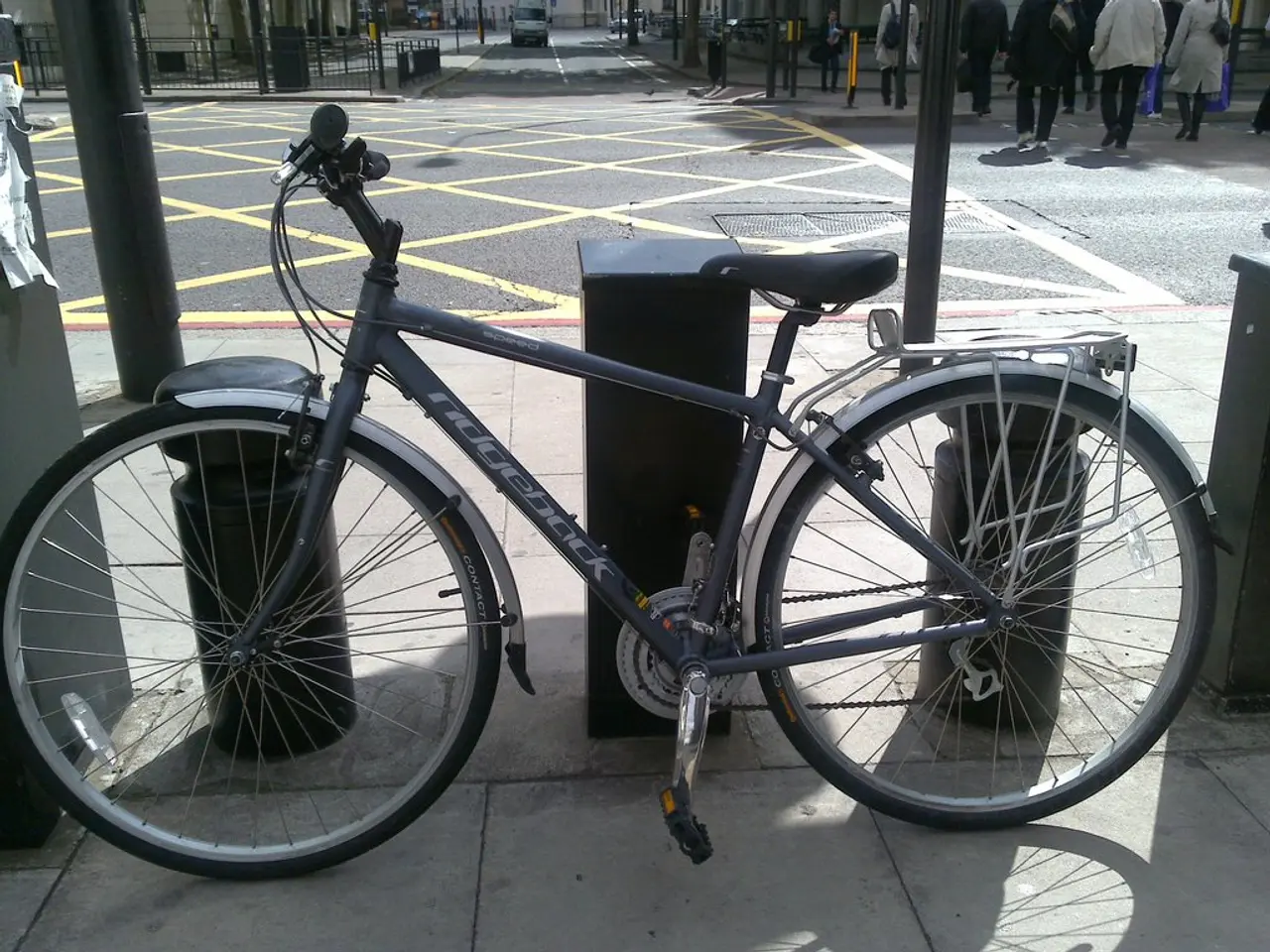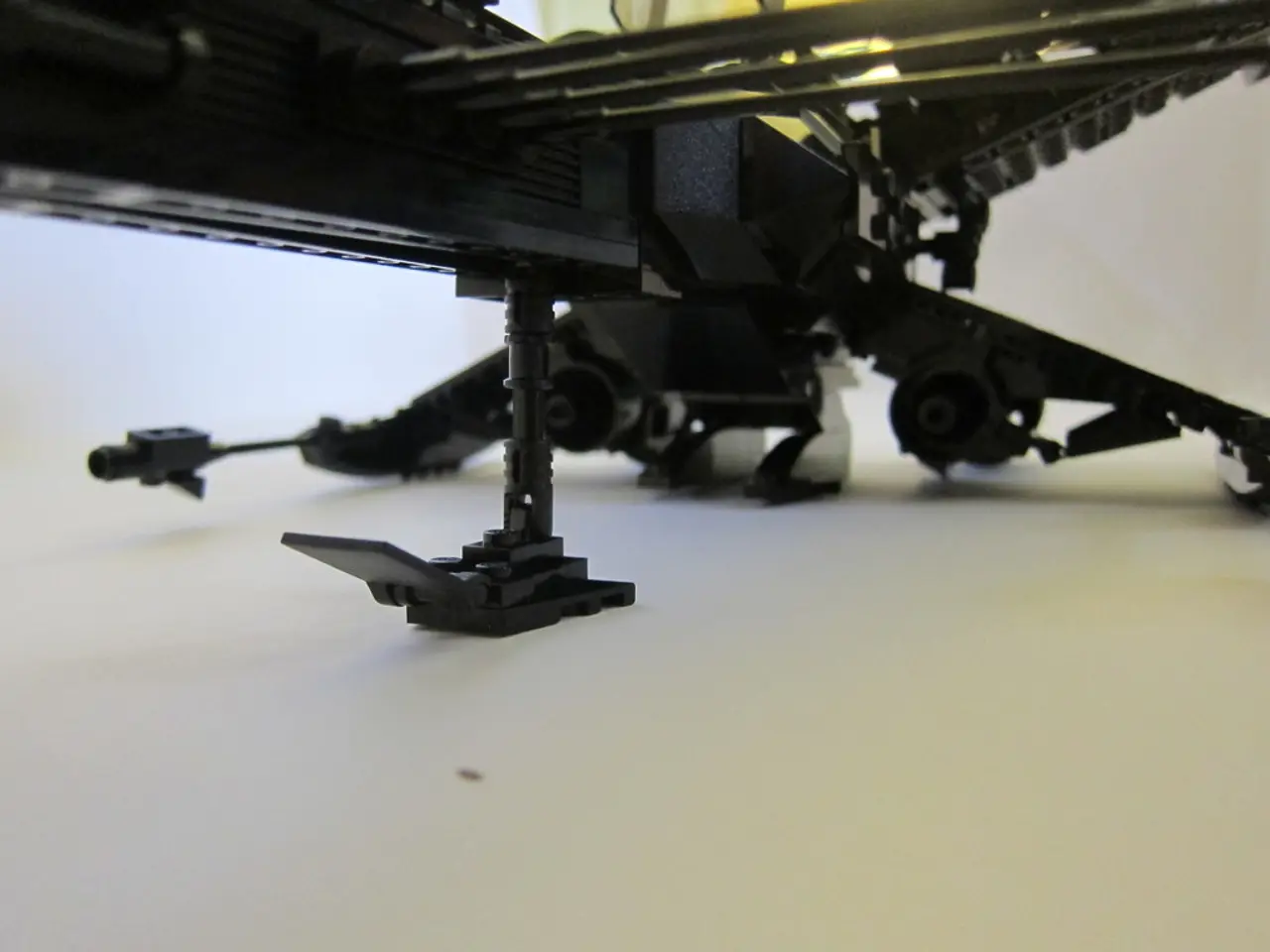Berlin: Commissioner Warns of Disruption to Daily Life for Jews
In the heart of Germany, Berlin, a city renowned for its vibrant culture and diversity, is grappling with an issue that has cast a shadow over its Jewish community - anti-Semitism.
Samuel Salzborn, the city's Anti-Semitism Commissioner, paints a stark picture of the current situation. He believes that anti-Semitism poses a significant problem, particularly in terms of assistance in such situations. The Commissioner's concerns are rooted in instances where food delivery services may identify Jews by their names or symbols, potentially leading to anti-Semitic responses.
Everyday situations, such as a Star of David pendant slipping out on the U-Bahn, can still pose a threat, despite the Berlin police's vigilance and attentiveness. Salzborn describes how these seemingly trivial actions can make everyday life extremely threatening for Jews.
Not everyone present in such cases recognizes these attacks as a problem and reacts. It's a common occurrence for Jews in all constellations to fear being recognized and wonder about the potential danger. As a result, many Jewish people in Berlin are significantly restricted in their daily lives.
Israel-hostile anti-Semitic actions occur regularly at demonstrations and universities in Berlin. Salzborn wishes that everyone would react if they witness Jews being anti-Semitically insulted or physically attacked. However, it's disheartening that not everyone does.
In an effort to combat this issue, Berlin has appointed a state contact person to combat anti-Semitism in universities. This role monitors existing efforts, advises educational institutions, and coordinates representatives addressing anti-Semitism, reflecting an institutional approach within academic settings.
However, the cultural and political landscape shows complexity. Balancing between combating anti-Semitism and tensions around Middle East solidarity expressions, efforts by cultural workers have pushed back against attempts to label criticism of Israeli policies as antisemitic, demonstrating active civil society engagement.
Germany's recent decision to halt military exports to Israel due to the conflict in Gaza has caused backlash among Israeli leadership and Jewish communities. This decision and the subsequent debate may influence Jewish communal life and the political climate, but direct safety initiatives linked to this are not detailed in the Berlin context.
Despite these measures, Salzborn describes a "threatening everyday life" for Jews in Berlin, which is often hidden and normalized. Many Jewish people no longer feel safe wearing a kippah in public, and some avoid telling taxi drivers their destination when going to the synagogue.
Jewish schools, institutions, and kindergartens are well-known places that may put Jewish people at risk. Increased security measures, following the Hamas massacre in Israel on October 7, 2023, and the ongoing Gaza war, have prevented many incidents.
In conclusion, Berlin's current concrete steps focus notably on combating anti-Semitism in universities via a dedicated contact person. However, there is no detailed mention of other city-wide or community security programs explicitly improving daily life safety for Jewish residents beyond this university initiative. It's clear that more needs to be done to ensure the safety and well-being of Berlin's Jewish community.
- Amidst the growing concern over anti-Semitism, the general news, politics, and crime-and-justice sectors should address the rising issue of food delivery services potentially discriminating against Jews by their names or symbols.
- In the university setting, the role of the state contact person offers a step towards combating anti-Semitism, but it is just one aspect of a broader approach needed to ensure the safety and well-being of Jewish students and the community as a whole.







